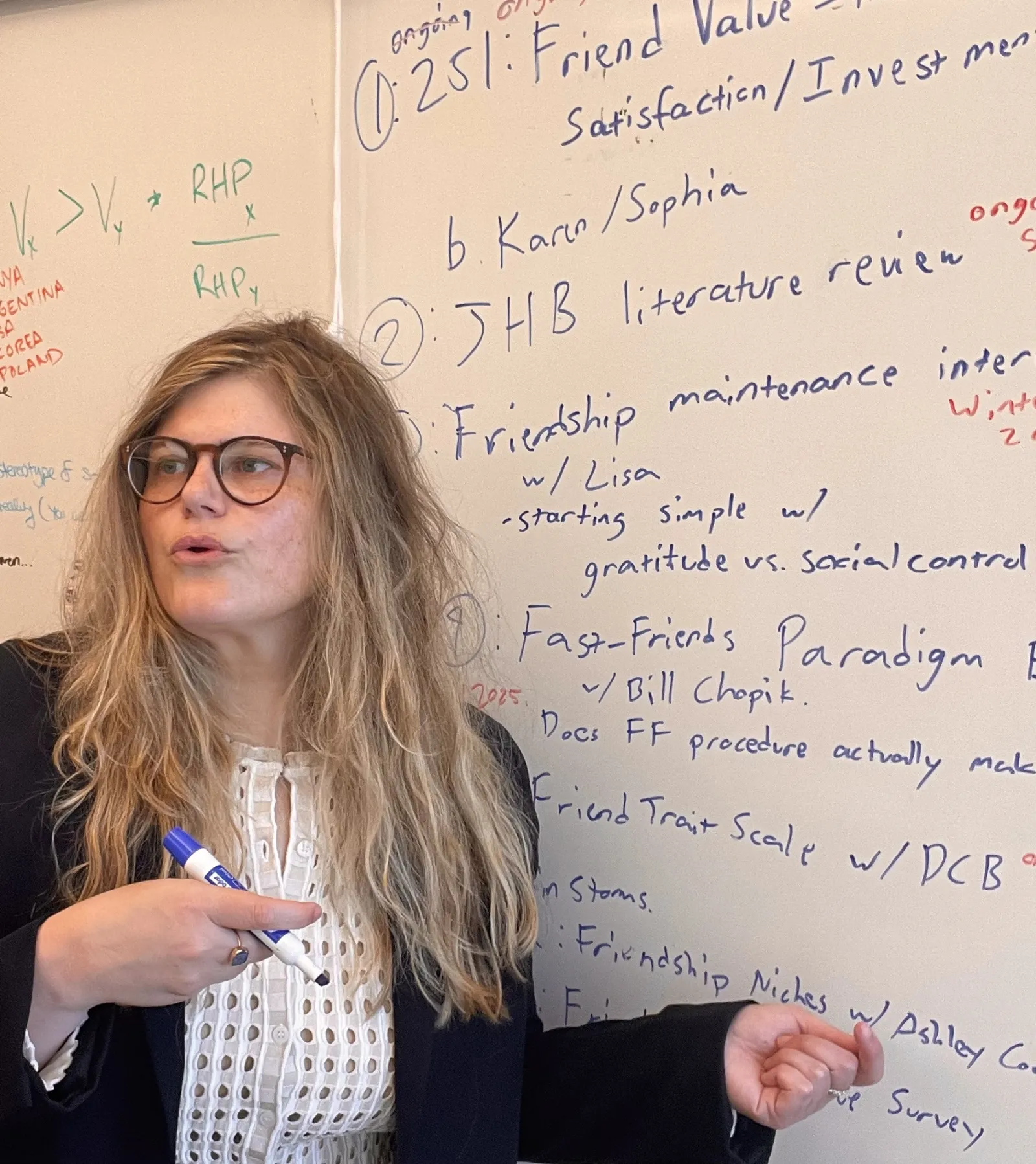Thank You for Being a Friend
Jaimie Krems ’06, director of UCLA's Center for Friendship Research, on the psychology of friendship.
Imagine something that could make people’s lives longer. Something that could lower stress and improve health outcomes, increase productivity at work and participation in communities, and reduce extremism.
“Basically, friendship is the buffer between us and living harder, shorter lives,” says Jaimie Krems ’06, “and we don’t understand how it works.”
Krems is trying to crack the code. She is an associate professor of psychology at UCLA and the director of its new Center for Friendship Research.
The number of studies on friendship lags far behind those on romantic relationships — despite being equally, if not more, important to our lives. Krems studies the psychology of how we form these bonds. Other projects at the center explore whether the 36 questions of the “fast friends paradigm” can really form lasting connections, and study synchrony in brain waves using functional near-infrared spectroscopy. The center is even planning the world’s first friendship conference for 2027.
It’s a fraught time for friendship. Headlines warn of a “loneliness epidemic” and technology has left us more isolated than ever. Friendships are maintained in a variety of ways, including in shared humor and mutual help. But why ask a friend for a ride to the airport when there is Uber?
“Friendship is the buffer between us and living harder, shorter lives, and we don’t understand how it works.”
“The little things that we used to do to invest in each other and ratchet up our friendships are being farmed out to technology,” Krems says. “People have a conception that others don’t want to be bothered, when in reality they want to be bothered. They feel warm and happy when friends ask for help.”
Krems has always been interested in women’s social relationships, the good and the bad. She knows the pain of a fractured friendship. She knows friendships can also cause stress. “I don’t think I’ve spoken to a single woman who has not admitted that,” she says. That’s why the research includes not just how to make friends, but how to maintain them, and explores the challenges and costs inherent in the relationship.
So, Krems says, “Text or call or email that one friend you thought about but haven’t spoken to in 10, 15, 25 years, because she’s going to be so happy to hear from you.”
Published on: 10/24/2025
